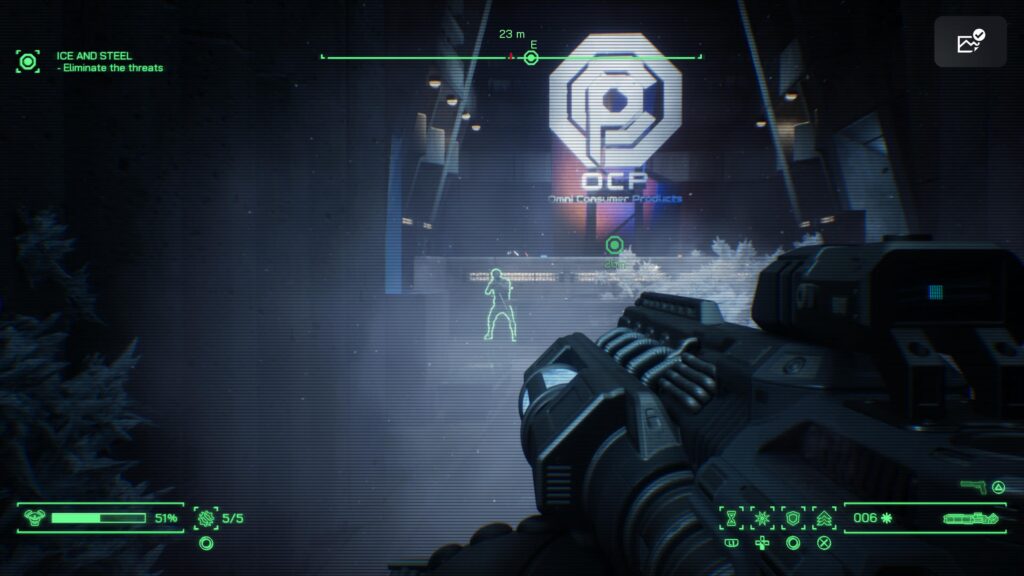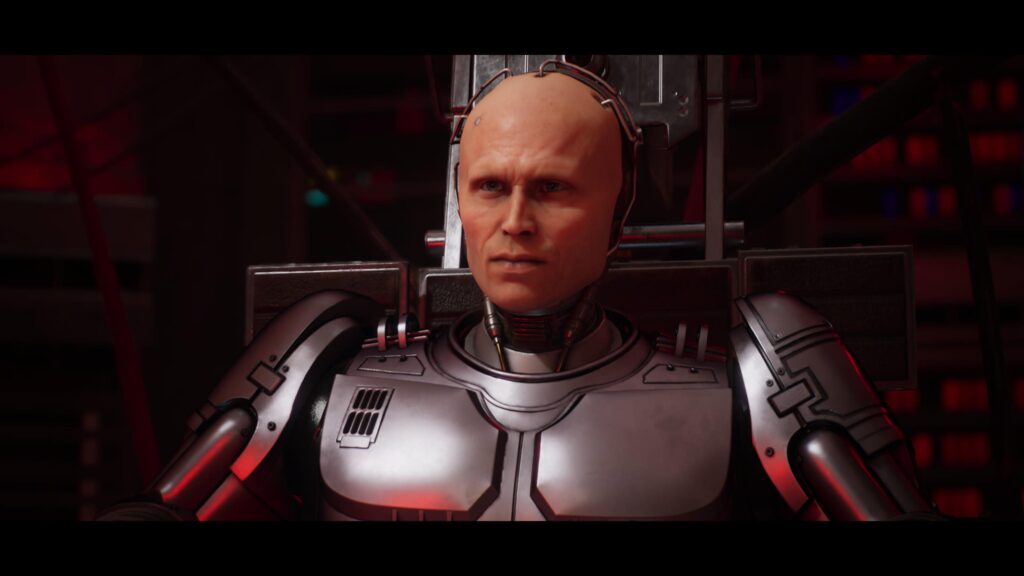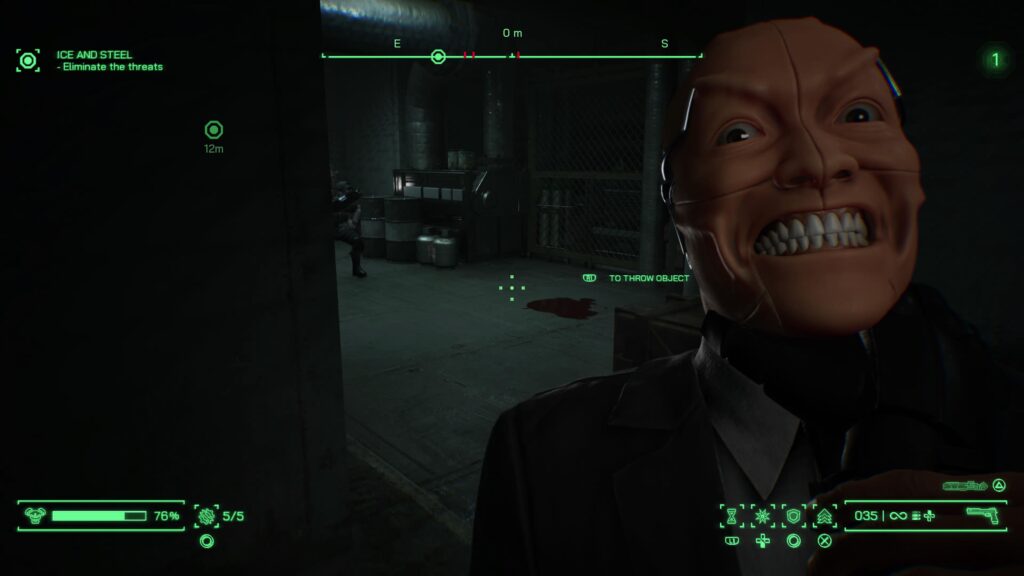RoboCop: Rogue City – Unfinished Business drops you right back into the steel boots of Detroit’s most iconic law enforcer. This standalone follow-up from Teyon builds on the gritty charm of its predecessor without demanding any prior knowledge. Whether you’re a seasoned fan or stepping in fresh, it delivers a leaner, tighter experience while staying true to the series’ signature tone and style.
The Tower of Broken Promises
Set shortly after the defeat of The New Guy in Town, RoboCop is drawn into a new conflict after an attack on a Detroit precinct leaves a trail of frozen corpses. All signs point to OCP’s latest urban utopia: the OmniTower, a sleek skyscraper housing Detroit’s displaced citizens. Or rather, containing them. What sounds like a modern sanctuary turns out to be little more than a vertical ghetto. Residents live in converted containers or shoebox-sized units under the watchful eye of OCP. And when a heavily armed group of mercenaries seizes control of the tower, it’s up to RoboCop to climb floor by floor and take out the trash. The narrative threads this ascent with strong pacing and reveals that tie into both Alex Murphy’s past and RoboCop’s present. It nails the tone of Verhoeven’s films, with dark satire, deadpan one-liners, and bursts of ultraviolence.
Ice, Steel, and Everything In Between
Gunplay in Unfinished Business builds on the weighty combat of the original. You still feel like a one-man army, especially with the unlimited-ammo Auto-9 at your side. But this time, there’s a clear effort to make other weapons matter. The Cryo Cannon, minigun, and grenade launcher aren’t just power fantasies; they’re situational tools that genuinely enhance tactical variety. Freezing enemies mid-charge or tearing through a shielded squad with the gatling gun feels both necessary and satisfying.
You’ll need the firepower. New enemy types like spider drones, jetpack troopers, and the Otomo P-02—a katana-wielding cybernetic nightmare straight out of RoboCop 3—bring real challenge. Combat encounters are punchy, well-paced, and never slip into monotony. The improved enemy variety helps tremendously.
Urban Pacification with a touch of society
Though the setting is mostly confined to OmniTower, Teyon smartly injects variety into its spaces. From neon-lit arcades to grimy medical bays, OCP showrooms, and back-alley food courts, the tower feels less like a concrete block and more like a bizarre city unto itself. Each area brings new enemy combinations and plenty of visual storytelling.
Even better, the pacing is spot-on. The 10- to 12-hour runtime is a notable step down from the 20-hour sprawl of the first game, and that’s a good thing. Nothing drags. Just when the firefights threaten to wear thin, the game shifts gears. You might patrol the halls, helping citizens with classic RoboCop police work – one-liners included, or flash back to Alex Murphy’s life before the cybernetics. Or even step into the hulking frame of ED-209 in a wild combat detour. It’s this constant momentum that keeps Unfinished Business from, well, feeling unfinished.
Familiar but much sharper
Teyon deserves credit for knowing what to keep. The XP-based upgrade system returns with two nodes already unlocked, letting you refine RoboCop to your playstyle from the get-go. The Auto-9 PCB grid is back, with new boosts and OCP nodes to find. You have full access to your suite of powers early on, and a tight opening tutorial ensures everyone’s on the same page. Best of all? It runs great. The game remained stable throughout, with only minor visual bugs flagged ahead of release—ones that the devs are actively patching. It’s a welcome improvement over the first game’s rougher technical edges.
Conclusion
RoboCop: Rogue City – Unfinished Business doesn’t try to rewrite the rulebook. Instead, it refines everything that worked in the original and trims what didn’t. With tighter pacing, improved combat variety, a punchy narrative that honours its source material, and smart level design within a confined setting, this is a proper follow-up and a great jumping-on point for newcomers. It might be called Unfinished Business, but for Teyon, this feels like a job well done.




